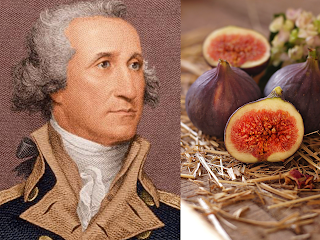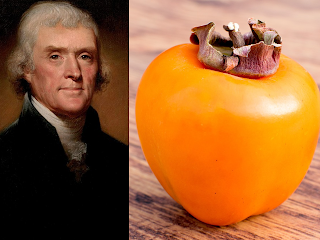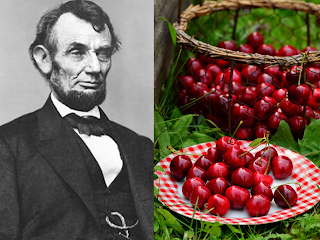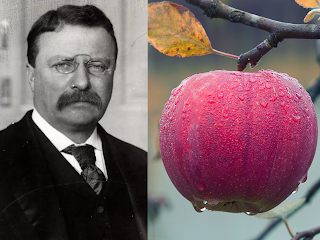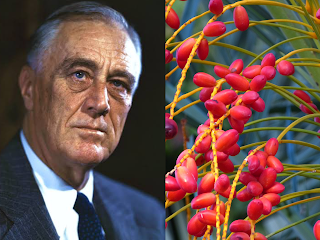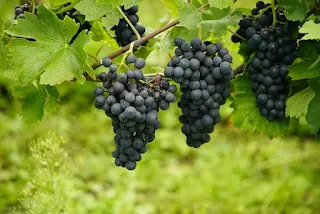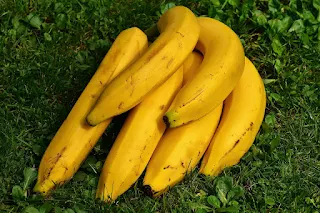History remembers presidents for their wars, their policies, and their legacies. But what about their fruit preferences? Believe it or not, the Oval Office has seen a fascinating array of favorite fruits enjoyed by the leaders of the free world.
Delve into this unexplored corner of presidential history and discover the surprising fruits that held sway over some of America's most influential figures.
George Washington: The Founding Father of Figs
The man who couldn't tell a lie apparently had a sweet tooth for a truth: figs. Fresh figs were a rare treat in 18th-century America, but Mount Vernon's meticulous records reveal Washington's efforts to cultivate fig trees.
Letters exchanged with fellow horticulturalists detail his attempts to acquire different fig varieties, showcasing his dedication to securing a steady supply of this delightful fruit.
Historians speculate that Washington's appreciation for figs stemmed from his time in the Caribbean, where he likely encountered them during the French and Indian War. Perhaps the sweetness offered a welcome respite from the battlefield's harsh realities.
Thomas Jefferson: A Champion of the Common Persimmon
The polymathic Jefferson, known for his architectural and scientific pursuits, was also an enthusiastic advocate for native American fruits. One that particularly captured his interest was the persimmon.
Unlike the astringent wild persimmons, Jefferson sought to cultivate sweeter varieties, even attempting to hybridize them with Asian persimmons. He believed persimmons held great potential as a readily available and nutritious fruit crop for American farmers.
While Jefferson's persimmon dream never fully materialized, his efforts highlight his commitment to exploring and promoting under-appreciated American fruits.
Abraham Lincoln: A Champion for Cherries
The man who preserved the Union clearly had a soft spot for a different kind of union – the sweet union of sugar and tartness found in cherries. While historical records offer limited details, anecdotes paint a picture of Lincoln's fondness for cherries.
One story describes him offering cherries to visitors as a peace offering during tense negotiations. Another tale recounts him requesting a constant supply of cherries during the Civil War, a request that, despite wartime hardships, was always fulfilled by his staff.
Perhaps the cherries provided a moment of solace amidst the war's turmoil.
Theodore Roosevelt: A Forceful Advocate for Apples
The energetic "Bull Moose" President, Theodore Roosevelt, was a champion of healthy living. His favorite fruit unsurprisingly reflected this philosophy: the apple.
Roosevelt believed apples were a quintessential American fruit, symbolizing not just health but also American ingenuity and self-reliance. He actively promoted apple cultivation and consumption, even planting apple trees on the White House grounds.
Roosevelt's apple advocacy likely contributed to the enduring association of apples with American identity.
Franklin D. Roosevelt: A Devoted Date Devotee
In contrast to Roosevelt's namesake, Franklin D. Roosevelt reportedly had a penchant for a more exotic fruit: dates. This preference might be linked to his wartime travels, where he encountered dates as a staple food in some regions.
Dates offered a concentrated source of energy, which may have appealed to the busy wartime president. Additionally, dates' long shelf life made them a practical choice for a man constantly on the move.
While the exact reasons remain unclear, FDR's fondness for dates adds a unique touch to his presidential persona.
Beyond the Bunch: A Basketful of Anecdotes
These are just a few examples of the surprising fruits that graced the White House. Harry Truman's love for watermelon slices on hot summer days, Lyndon B. Johnson's reported enjoyment of peaches, and Richard Nixon's affinity for grapefruit are further testaments to the diverse palates that have occupied the Oval Office.
These seemingly trivial details offer a glimpse into the human side of our presidents, reminding us that even the most powerful figures have their simple pleasures.
Fruits and the Presidency: A Legacy of Diversity
The history of presidential fruit preferences reveals a fascinating intersection of personal taste, cultural influences, and even political symbolism.
From the founding fathers to modern times, the fruits on the presidential table have reflected the evolving American palate and the unique personalities of the men who led the nation.
As future presidents take office, one wonders what new and surprising fruits they might bring to the White House table, adding another layer to the rich tapestry of American presidential history.
Further Exploration:
This article merely scratches the surface of this delightful topic. For those interested in delving deeper, consider researching:
- The history of specific fruit cultivation in the United States.
- The symbolism of different fruits in various cultures.
- The role of food and drink in presidential history.
The Fruit and the Feud: Presidential Palates and Political Rivalries
The world of presidential fruit preferences isn't always harmonious. History offers a few instances where a leader's fruit of choice became entangled with political rivalries.
The Great Grape Caper: Nixon vs. McGovern
The 1972 presidential election pitted Richard Nixon, a reported grapefruit enthusiast, against George McGovern, a champion of South Dakota's booming sunflower industry. During a campaign stop, McGovern playfully offered Nixon a sunflower seed.
Nixon, ever the strategist, saw an opportunity. He theatrically peeled a grapefruit in front of the cameras, implying that McGovern's "airy-fairy" sunflower focus paled in comparison to his own grounded, American preference for grapefruit – a fruit with a (supposedly) more substantial bite.
This staged moment, dubbed the "Great Grapefruit Caper," highlighted a broader attempt by Nixon to portray McGovern as out of touch with the American people.
The Banana Debacle: Bush vs. Kerry
In 2004, a seemingly innocuous moment on the campaign trail sparked a minor controversy. During a visit to a Dominican Republic banana plantation, then-President George W. Bush donned a traditional Dominican hat while holding a banana.
Critics seized on the image, portraying it as insensitive and out-of-touch with the economic struggles faced by many banana-producing nations. While the incident might seem trivial, it demonstrated how a president's choice of fruit, even in a seemingly innocuous context, could be used to paint a broader political narrative.
Beyond Bickering: Fruits as Tools of Diplomacy
Thankfully, fruits haven't always been used to stoke political fires. Many presidents have utilized their favorite fruits as tools of diplomacy. Dwight D. Eisenhower, a known fan of watermelon, reportedly used it to break the ice with Soviet leader Nikita Khrushchev during a tense Cold War summit.
The shared enjoyment of a simple fruit, it seems, helped create a more relaxed atmosphere for crucial negotiations.
The Future of Presidential Fruit: A Bite of What's to Come
As America's demographics and cultural landscape continue to evolve, so too will the fruits gracing the White House table. Future presidents might champion lesser-known fruits native to America, reflecting a renewed focus on sustainability and local agriculture.
Perhaps a president with roots in a specific immigrant community might introduce a beloved fruit from their heritage, showcasing the nation's rich cultural tapestry. The possibilities are endless, and each new presidential fruit choice promises to offer a unique window into the leader's personality and priorities.
Conclusion: A Sweetened Understanding of History
Examining presidential fruit preferences might seem like a frivolous pursuit. Yet, it offers a surprisingly rich and insightful lens through which to view the American presidency. These seemingly trivial details reveal the human side of our leaders, their cultural influences, and even the occasional political jab.
So, the next time you bite into a juicy apple, a refreshing slice of watermelon, or a date with a complex sweetness, remember, you might just be sharing a taste with a former president, adding a touch of sweetness to your understanding of American history.
NOTE : "Information provided by Gemini, a large language model from Google AI."
